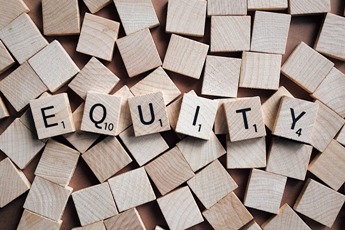Consultation open on a Fair Pay Agreements system
Tue 29 Oct 2019
The Ministry of Business, Innovation and Employment (MBIE) is seeking public feedback on a proposed system for Fair Pay Agreements.

The Ministry of Business, Innovation and Employment (MBIE) is seeking public feedback on a proposed system for Fair Pay Agreements.
Fair Pay Agreements would create a new mechanism for collective bargaining, to set binding minimum terms at a sector or occupation level. These Agreements would be a "set of occupation and sector-specific minimum employment standards, such as wages, redundancy, or overtime. They will be agreed through bargaining between affected workers and employers, and will then become legal requirements in that sector."
A Fair Pay Agreement Working Group was set up in June 2018 to make recommendations on the design of a sector-level bargaining system. The Working Group provided its recommendations to the Minister for Workplace Relations and Safety in December 2018.
Minister Iain Lees-Galloway announced the new consultation saying:
“Many working New Zealanders are not receiving their fair share. For a number of decades we have experienced increasing levels of inequality and poverty. Over that time, vulnerable workers have had less access to collective bargaining, and wages haven’t kept up with productivity increases.
Fair Pay Agreements are one part of the Government’s plan to address this. They would be designed for occupations and sectors that need extra help to lift wages and conditions. They could encourage competition that is based not on low wages, but on better products and services, and investments in skills, training and equipment."
Particular groups of employees are more likely to have had less access to collective bargaining and wages that have not kept up with productivity increases, including women, Māori, Pasifika, people with disabilities, senior workers and youth.
MBIE is asking for feedback on a proposed system for Fair Pay Agreements that covers six areas:
- How a Fair Pay Agreement process would start
- Deciding which employers and workers the Agreement would apply to
- Details of how the bargaining process would work
- How to handle disagreement during bargaining
- Checking that an agreement will not have negative economic effects
- How to finalise, enact and recover the costs of an Agreement.
MBIE's Discussion Paper outlines the proposed system and asks specific questions for feedback.
There is also a brief Consultation Summary.
Submissions are due on 27 November 2019. You can give feedback by completing the submission form and emailing it to FairPayAgreements@mbie.govt.nz or post it to:
Employment Relations Policy team
Labour and Immigration Policy
Ministry of Business, Innovation & Employment
PO Box 1473
Wellington 6140
Media has reported the Government is also in the process of drafting Fair Pay legislation but would not confirm whether it will be introduced or passed before next year's election.
Commentary
The Council of Trade Unions (CTU) has published Fair Pay Agreements: A Framework for Fairness. The report outlines six key principles for Fair Pay Agreements. CTU President Richard Wagstaff said,
"The work on designing good Fair Pay Agreements has already largely been done by the Government’s Joint Working Group of unions and business." He said "Working people need this Coalition Government to deliver on their promises. Now is the time for action."
Jan Logie, Green Party Workplace Relations spokesperson, has said “We want to see the six principles outlined in the CTU’s Framework for Fairness taken up by Government." She went on to say:
“That means reasonable thresholds for initiating FPA negotiations, proper representation for workers through their unions, covering contractors as well as employers, and when a majority of workers and majority of employers have settled an agreement, that should be the final word on the matter.
There’s already been a considerable amount of consensus-building on these issues through the Working Group. These proposals are practical, common sense and fair – for everyone.
We’re looking forward to Fair Pay Agreements becoming a reality for workers and their families.”
Related news
The Equal Pay Amendment Bill is separate legislation that was introduced to Parliament in September 2018. The purpose of the bill is to improve the process for raising and progressing pay equity claims, and to eliminate and prevent discrimination on the basis of sex in the remuneration and employment terms and conditions for work done within female-dominated jobs. The Select Committee submitted their final report in May 2019, recommending the Bill be passed with amendments. For more information see the MBIE website.
Related media
Why Fair Pay Agreements are the answer for New Zealand's workers, Stuff, 02.11.2019
More progress for women and we can do more, Beehive Press Release, 18.10.2019 (see the Addressing the gender pay gap and driving women’s representation in senior leadership report)
Fair Pay Agreements 'kicked for touch' with fresh round of consultation, NZ Herald, 17.10.2019
Labour's wants fair pay, but may have kicked it beyond the 2020 election, Stuff, 17.10.2019
Time for government to get on with it with Fair Pay Agreements, says union head, Stuff, 15.10.2019
Image: The Gender Spectrum Collection







